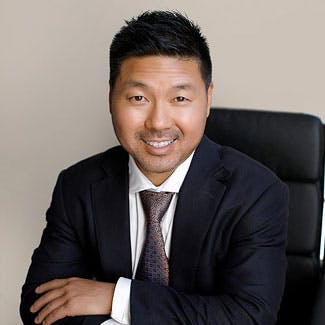
The safety and well-being of our loved ones is why you place them in a nursing home. Although we trust these facilities to provide the highest care and support, nursing home abuse is an often hidden problem. This abuse can take many forms, including physical, emotional, sexual, and financial.
Recognizing the signs of such abuse can keep our loved ones in the safe and dignified setting they deserve.
If you identify signs of nursing home abuse or suspect your loved one is a victim, hire a nursing home abuse lawyer. Knowing the signs of nursing home abuse or neglect allows you to provide your relative with the tools they need in their fight for compensation for the harm they have suffered at the hands of the at-fault party.
A nursing home abuse lawyer has the resources and knowledge necessary for protecting the rights of your loved one under the law and fighting on their behalf against the responsible parties.
What Is Nursing Home Abuse?
Abuse is the intentional harm or neglect nursing homes or long-term care facilities inflict upon older residents. It is a widespread problem posing serious risks to the health and well-being of the vulnerable, often leading to physical injuries, emotional trauma, financial loss, and, in the worst cases, death.
Abuse in a nursing home can take several forms depending upon the perpetrator’s actions and the consequences for the victims.
Your loved one can suffer various types of abuse from one or multiple parties while in a nursing home:
- Physical abuse: This involves the intentional infliction of physical harm, such as hitting, slapping, pushing, or improper use of restraints.
- Emotional abuse: These actions cause emotional or psychological distress, such as yelling, humiliating, intimidating, or isolating the victim.
- Sexual abuse: This includes any non-consensual sexual contact or behavior.
- Financial abuse: This often involves unauthorized use of your relative’s money, assets, or personal information for the wrongdoer’s benefit.
- Neglect: Although not an intentional form of harm, neglect fails to provide the items essential for a healthy, fulfilling life, including nutritious food, required medication, or a clean living environment. This situation can arise when a caretaker cannot meet the demands of their job or a facility needs more staff to provide proper care for all its residents.
Because of the fragility and vulnerability of many nursing home residents, they may not effectively communicate the occurrence of abuse or neglect, making recognizing it difficult.
The Role of a Nursing Home Abuse Lawyer
After understanding the grim reality of nursing home abuse, you may wonder how to tackle such a problem if you detect it happening to your loved one.
You need a nursing home abuse lawyer to move your relative out of harm’s way and provide them with the support they need.
A nursing home abuse lawyer represents victims of nursing home abuse. They advocate for your loved one, safeguard their rights, and seek justice by holding the responsible parties accountable.
These attorneys deal with the legal aspects of the case and navigate the complexities of the aftermath of this traumatic event. They prepare and file legal documents, gather and analyze evidence, negotiate with insurance companies, and, if necessary, represent your family member in court.
How Can a Nursing Home Abuse Lawyer Advocate for Victims and Their Families?
A nursing home abuse lawyer provides legal counsel and representation to victims and their families.
They can perform many tasks, including:
- Obtain proof of abuse: Your lawyer can gather the necessary evidence to prove that abuse or neglect has occurred. This evidence includes medical reports, photographs, testimonials from staff or other residents, and financial documents.
- Complete legal procedures: Filing a lawsuit involves complex legal procedures that may intimidate those unfamiliar with the legal system. An experienced nursing home abuse attorney can navigate this process, ensuring they take all necessary steps.
- Negotiate settlements: Nursing home abuse cases often reach settlements outside of court. A skilled lawyer can negotiate a fair settlement for your loved one, maximizing the odds of winning the compensation they deserve.
- Provide representation in court: If the case goes to court, a nursing home abuse lawyer can effectively present the case, argue on your relative’s behalf, and aim for a successful outcome.
Hiring a nursing home abuse lawyer is not just about seeking justice for your loved ones; it is about asserting their rights, seeking the compensation they deserve, and holding the parties responsible for the abuse accountable for their actions.
Signs of Physical Abuse
Physical abuse often leaves visible signs on the victim. These might be unexplained bruises, cuts, abrasions, broken bones, burns, or evidence of physical restraint, such as strap marks on wrists or ankles.
Frequent, unexplained injuries signal physical abuse, especially if they happen repeatedly. Conspicuous behavior, such as flinching when touched, seeming scared around caretakers, or seeking isolation, can indicate ongoing physical abuse.
If you notice signs of physical abuse, take immediate action. Contact local law enforcement and a nursing home abuse lawyer.
Physical abuse can escalate quickly and cause serious and irreversible harm or death. Timely intervention can save a life. Move your loved one out of harm’s way and seek treatment for their injuries. After ensuring their safety, take legal action against the responsible party.
Signs of Emotional Abuse
Emotional or psychological abuse can damage your loved one—perhaps more than physical abuse. The signs of emotional abuse are often subtler and harder to recognize but no less important.
Emotional abuse can manifest through new and unusual behavioral traits, such as rocking, sucking, becoming depressed or anxious, withdrawing from personal interactions, or displaying fear around certain staff members.
Your loved one may also mumble to themselves. They might show signs of confusion, disorientation, or non-responsiveness, which you could mistake for symptoms of dementia when they result from abuse-related emotional trauma.
Identifying emotional abuse requires paying attention to any warning signs. If you suspect emotional abuse, communicate openly with your relative about their experiences and feelings. Report your concerns and contact an attorney experienced in nursing home abuse.
Signs of Sexual Abuse
While it is distressing to consider, sexual abuse in nursing homes can occur. Identifying its signs can protect your loved one and hold the perpetrators accountable. Sexual abuse can leave physical and emotional scars.
Possible physical signs are unexplained genital infections, bleeding, bruising, and torn or stained underwear. On the emotional front, your loved one may become withdrawn, depressed, or exhibit fear toward a specific person. They may show signs of other unusual behavior, such as avoiding physical contact. Nightmares and flashbacks might suggest they have post-traumatic stress disorder.
Identifying sexual abuse, especially of nursing home residents or other vulnerable people, demands immediate action. Report your suspicions to law enforcement and contact a nursing home abuse lawyer. Seeking immediate medical attention can collect evidence, ensure your loved one’s safety, and begin their healing.
Signs of Financial Abuse
Nursing home residents are often easy targets for financial abusers. Their actions can be devastating, infringing on your loved one’s quality of life and leaving them financially vulnerable. They often don’t realize they are suffering exploitation until it is too late.
You will detect financial abuse through sudden reductions or increases of bank account balances, unexplained withdrawals, missing cash or possessions, unexplained modifications of legal documents, such as wills or powers of attorney, and non-payment of bills despite the availability of financial resources.
If you suspect financial abuse, act quickly to protect your loved one and their money. Review financial statements and documents for suspicious activity and contact a nursing home abuse lawyer. Take protective steps, such as replacing the person responsible for managing your relative’s finances.
Signs of Nursing Home Neglect
Neglect is abuse and can have serious consequences for the health and well-being of your loved one. A pattern of issues can prove neglect.
Manifestations of neglect can vary but might include poor personal hygiene, weight loss, bedsores, unclean living conditions, unattended medical needs, and lack of necessary aids, such as dentures, glasses, or walkers. Emotional signs, such as withdrawal, unusual anger, or trauma, can also be indicators of neglect.
Detecting neglect requires vigilance, continuous observation, and communication with your relative. If you notice signs of neglect, addressing your concerns is imperative. The longer neglect continues, the more susceptible your loved one becomes to complications and other health issues. Contact a nursing home abuse lawyer who will strive to safeguard the rights and health of your family member.
Abuse in any form is unacceptable, and vigilance and intervention are your strongest weapon in ensuring the safety and well-being of your loved ones in nursing homes.
Steps to Take If You Notice Signs of Abuse
Despite the best efforts of individuals and institutions to prevent abuse, it remains a reality. Once you have identified signs of abuse, what can you do to protect your loved one?
If you suspect any abuse, ensure your relative’s safety.
First contact local law enforcement and adult protective services agencies. Remove your family member from the abusive situation, especially when they risk receiving physical harm.
The next step is to document the suspected abuse. Taking pictures of injuries or unclean conditions, collecting eyewitness accounts, and keeping detailed notes of your loved one’s behavior and well-being are vital to the case.
Contact a nursing home abuse lawyer as soon as possible so they can assess your legal options. Your lawyer can mediate with the nursing home and other parties.
Do not alert the nursing home of your suspicions of abuse before you speak with a lawyer. Talking to the wrong individual could endanger your relative and risk the perpetrator or facility tampering with or covering up evidence.
When to Hire a Nursing Home Abuse Lawyer

When a nursing home has endangered your loved one, move them to safety and then hire a lawyer. A nursing home abuse attorney can represent your relative’s interests, fight for the care they deserve, seek compensation for their injuries, pain, and suffering, and hold the responsible parties accountable.
A qualified personal injury attorney brings a wealth of knowledge and experience to your case. They can navigate complex legal processes, gather and analyze evidence, and present a compelling argument. Their advocacy can ease the burden and achieve justice and fair compensation for your loved one.













